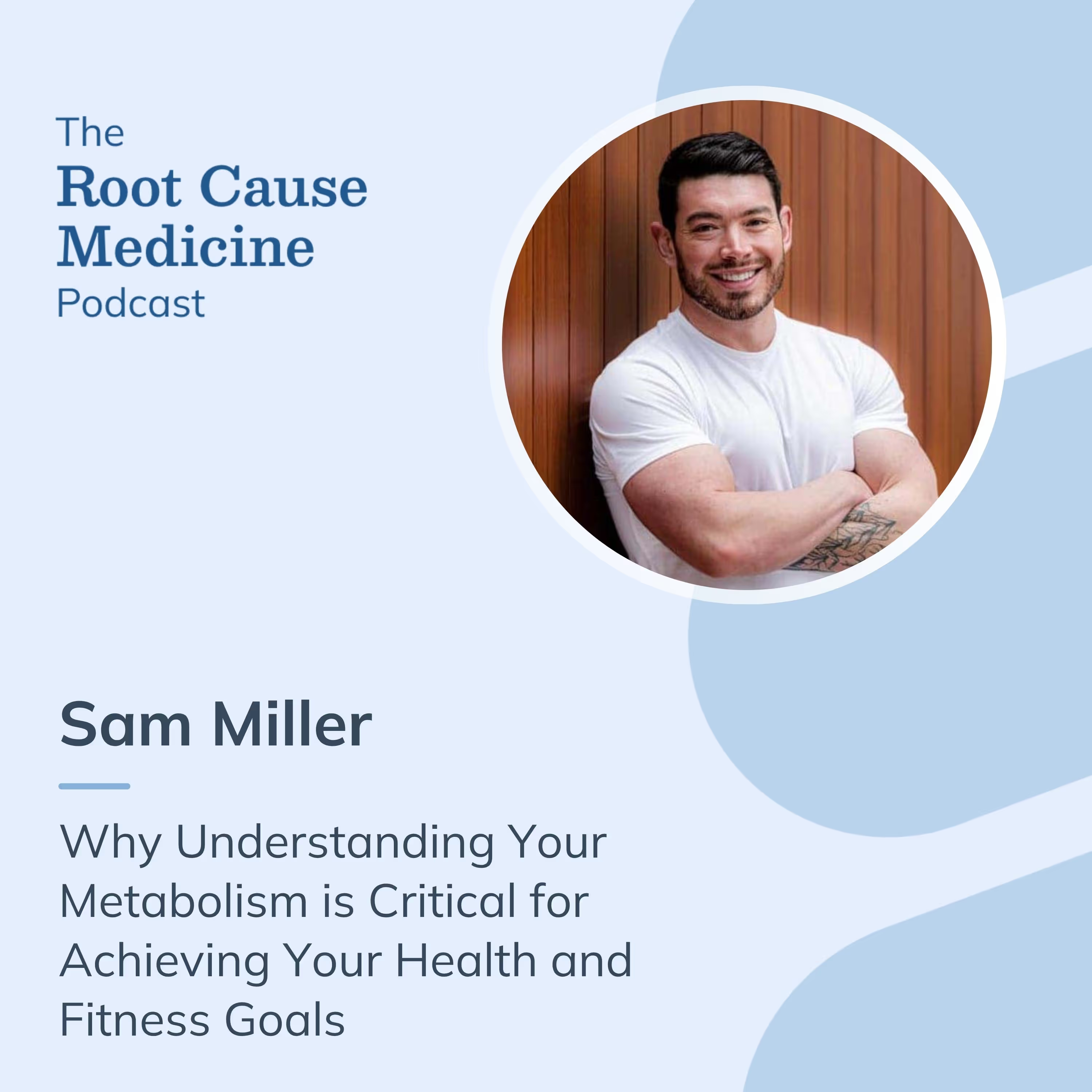
Pricing
Practitioners
Patients
Education
Pricing
Practitioners
Patients
Education



In this episode, Sam Miller shares all about metabolism, including how nutrition and lifestyle affect hormones and metabolism, the correct way of dieting, and habits for optimal well-being.
With over a decade of experience as a health, fitness, and nutrition coach, Sam Miller is a renowned expert in his field. His programs are designed to help coaches and health professionals enhance their clients' results. Sam's workshops, classes, and specialization programs have been used by over 2,500 coaches worldwide.
He has been invited to speak for prestigious companies like LinkedIn and contributed content for industry leaders such as Barbell Shrugged, Muscle Intelligence, T-Nation, Elite FTS, and many others. In addition, Sam holds a master's degree from North Carolina State University and a Bachelor of Science degree from Elon University and is a certified nutritionist and licensed, board-certified health practitioner.
Key Takeaways:
How nutrition and lifestyle affect hormones and metabolism
Often, individuals overlook the significant impact of nutrition and lifestyle on their metabolism and hormones. However, a deeper understanding of these physiological processes can lead to informed decisions about your nutrition and lifestyle based on your current metabolic or hormonal state. Achieving optimal health and body composition, as well as enhancing athletic performance, requires consideration of both aspects. Neglecting either of these factors would result in a significant omission in the overall equation.
Understanding your metabolism
Metabolism is a regulator of stress and energy or the chemical process in the body's cells that transform food into energy. People often use terms such as "slow" or "fast" metabolism, or even "broken" metabolism, to describe their own metabolic status without really understanding what that means.
It's natural to throw those terms around when other variables impact your body weight, exercise, or non-exercise activity. The metabolism is malleable and adaptive based on the environment, diet, exercise, health history, and other criteria. So it all depends on your choices and daily actions.
Menopause and metabolic changes
Hormonal fluctuations of testosterone, progesterone, estrogen, and cortisol occur during perimenopause and menopause, leading to an increase in body fat and a decrease in muscle mass. As a result, women undergoing these changes must pay close attention to their body's transformation and modify their training, nutrition, and lifestyle accordingly.
High-intensity training without adequate nutrition during perimenopause or menopause can result in metabolic disruption. Engaging in resistance training, walking, and reaching step goals are the most effective ways to maintain optimal metabolic balance during these stages.
Calories in versus calories out - myth or reality?
Weight loss or gain is not only about calories in or out. Hormones also play a significant role. When we consume food, the number, type, and spacing of the calories and the quantity of energy coming into the system will impact the system from a hormonal perspective. If you're following a standard American diet, which is calorically dense but not micronutrient dense, that will influence your hormones.
But hormones also impact everything from hunger and cravings and blood sugar regulation to when you want that next meal, both the hedonic and homeostatic eating systems in terms of the food decisions you're making daily. So find a balance between calorie control and hormone optimization to reach your goals.
Is dieting good for you?
Often, individuals seeking to reduce their body fat levels resort to drastically lowering their calorie intake. While this approach initially appears logical as it aligns with conventional weight loss education, it often lacks a sufficient runway and an exit strategy. Consequently, weight regain occurs, and upon resuming dieting, metabolic adaptation sets in, leading to elevated cortisol, downregulation in the thyroid, and the HPG axis. Balancing the stimulus and making gradual changes to nutrition is key to successful dieting without overdoing it. Moreover, a well-defined exit strategy is essential to avoid compromising one's metabolic function over the long term.
Also, check out Sam’s recommended lab testing: TSH test, DUTCH test
Learn more about Sam Miller:
Rupa Health Details:
If you enjoyed this episode then please either:
The Root Cause Medicine Podcast is handcrafted by our friends over at: fame.so
Previous guests include: Dr Cheryl Burdette of Dunwoody Labs, Cynthia Thurlow of Everyday Wellness, Dr. Stephanie Estima of Hello Betty, Keri Anania of Nebraska Functional Medicine, Dr. Ralph Esposito of Athletic Greens, Dr. Rob Silverman of Westchester Integrative Health Center, Dr. Elizabeth Yurth of Boulder Longevity Institute and Dr. Mindy Pelz of Dr. Mindy Pelz Co.
Check out our three most downloaded episodes: